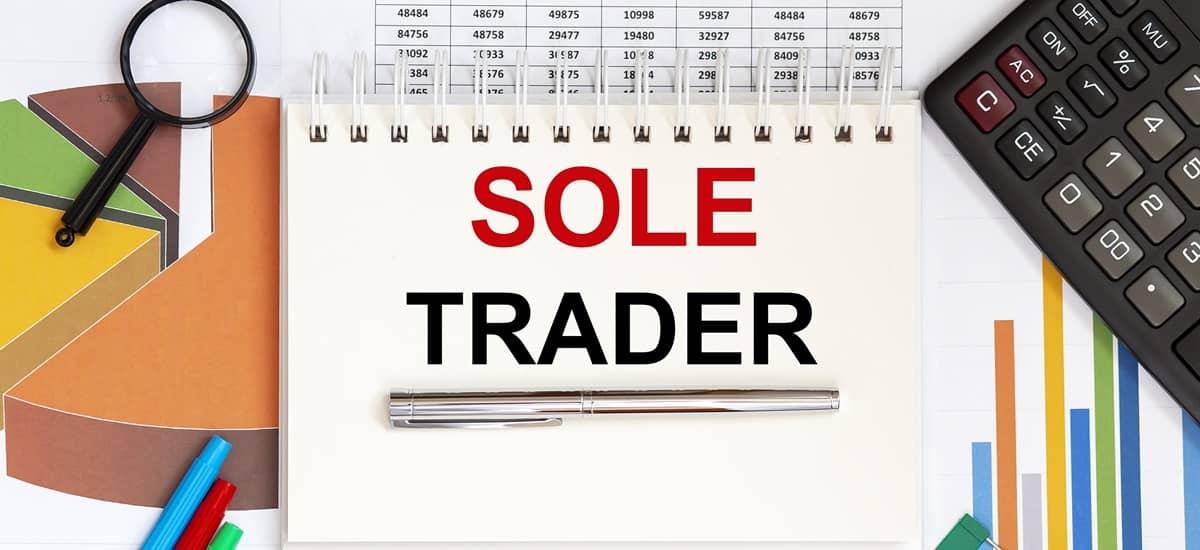Bookkeeping for Sole Traders: A Comprehensive Guide

Starting and running a business as a sole trader involves handling many tasks, and bookkeeping is one of the most critical. Proper bookkeeping ensures financial clarity and keeps your business compliant with tax regulations. In this guide, we will explore the essentials of bookkeeping for sole traders, focusing on why it’s important, how to manage it efficiently, and the key aspects that every sole trader should know.
Understanding Bookkeeping for Sole Traders
Bookkeeping is the process of recording all financial transactions of a business. For sole traders, it’s essential to keep accurate records of income and expenses to calculate profits and understand the financial health of your business. Proper bookkeeping also helps in submitting accurate tax returns, which is a legal requirement for all sole traders.
Why is Bookkeeping Important for Sole Traders?

For sole traders, effective bookkeeping is crucial for several reasons. First, it ensures that you can track how well your business is performing. By keeping accurate records, you can analyze your business's cash flow and make informed decisions. Additionally, it simplifies the process of filing your annual self-assessment tax return. By maintaining accurate records throughout the year, you can avoid last-minute stress and ensure that all allowable expenses are accounted for.
Moreover, proper bookkeeping helps sole traders stay compliant with HMRC regulations. Failure to keep proper records could result in penalties, so it’s essential to maintain detailed and accurate financial records at all times.
How to Get Started with Sole Trader Bookkeeping
Starting with bookkeeping as a sole trader might seem daunting, but with the right system in place, it can be straightforward. The key is consistency and understanding the basics of what needs to be recorded. Here’s what you need to do:
-
Set up a system: Whether you use a simple spreadsheet or accounting software, ensure that you have a system for recording your transactions. Many sole traders prefer using software like Xero, QuickBooks, or Sage because these platforms simplify the process of managing financial records and offer features like invoicing and expense tracking.
-
Track income and expenses: Record every piece of income you receive and every business-related expense. This includes everything from sales to small purchases. Each transaction should be documented with receipts and invoices. Keeping track of expenses will help you claim allowable expenses, reducing your taxable profit.
-
Separate business and personal finances: Although sole traders are not legally required to have a separate business account, it’s highly recommended. Having a separate account for business transactions makes it easier to track income and expenses. It also ensures that you don’t mix personal and business finances, which can lead to confusion when calculating your taxes.
-
Regularly reconcile accounts: Reconciling your accounts means checking that your financial records match your bank statements. Doing this regularly ensures that your records are accurate and up to date. It also helps catch any errors or missing transactions.
-
Prepare for tax deadlines: As a sole trader, you are required to file a self-assessment tax return each year. Keeping your books in order throughout the year will make it easier to file your return and avoid errors. Ensure you stay on top of key tax deadlines to avoid late filing penalties.
Bookkeeping Software for Sole Traders
Many sole traders find that using bookkeeping software makes managing their finances easier. These tools often integrate with your bank account, automating the process of tracking income and expenses. Some popular options include:
-
QuickBooks: Another popular choice for sole traders, QuickBooks offers similar features to Xero, including tracking income and expenses, invoicing, and reporting. It’s a great tool for keeping your financial records organized.
-
Sage: Sage is a long-standing player in the accounting software market and is particularly suited to UK-based sole traders. It offers a range of features that simplify bookkeeping, including VAT submission and payroll.
Common Bookkeeping Mistakes Sole Traders Should Avoid
While bookkeeping is essential, many sole traders make common mistakes that can lead to problems down the line. To avoid issues, be mindful of these errors:
-
Not keeping receipts: Always keep receipts for business expenses. If you don’t, you may not be able to claim those expenses, which could result in paying more tax than necessary.
-
Mixing personal and business expenses: As mentioned earlier, always keep personal and business finances separate. This simplifies your bookkeeping and avoids confusion.
-
Waiting until the last minute: It’s easy to fall behind on bookkeeping, but this can cause stress at tax time. Make a habit of recording transactions regularly.
The Benefits of Outsourcing Bookkeeping
As a sole trader, you may want to focus more on growing your business than managing your books. In such cases, outsourcing your bookkeeping can be a smart move. Many sole traders opt to hire a freelance bookkeeper or outsource to an accounting firm like Xact Accountants. By outsourcing your bookkeeping, you can ensure that your records are accurate, up to date, and compliant with tax regulations.
Outsourcing also frees up your time, allowing you to focus on core business activities. Many sole traders find that the cost of outsourcing is outweighed by the time and stress it saves.
Bookkeeping Business for Sale: A Growing Opportunity
The demand for bookkeeping services has been steadily increasing, particularly as more people start businesses as sole traders. If you’re interested in the bookkeeping industry, you may consider buying a bookkeeping business for sale. Purchasing an existing business can be a great way to enter the market, as it provides you with an established client base and proven systems.
Many sole traders who are skilled in bookkeeping have found success by expanding their services and purchasing a bookkeeping business. This not only allows them to grow their business but also helps other sole traders by offering professional bookkeeping services.
Conclusion:
Bookkeeping may not be the most exciting aspect of running a business, but it is one of the most important. By keeping accurate records, using the right tools, and avoiding common mistakes, sole traders can ensure their financial health and stay compliant with tax regulations. Whether you manage your bookkeeping yourself or outsource it to professionals like Xact Accountants, the key is consistency and attention to detail.
If you're looking to streamline your bookkeeping process or need professional assistance, don’t hesitate to explore the services of experienced accountants who specialize in helping sole traders. Keeping your books in order will not only help you manage your business more effectively but also give you peace of mind knowing that your finances are in good hands.
- Art
- Causes
- Crafts
- Dance
- Drinks
- Film
- Fitness
- Food
- Oyunlar
- Gardening
- Health
- Home
- Literature
- Music
- Networking
- Other
- Party
- Religion
- Shopping
- Sports
- Theater
- Wellness
- IT, Cloud, Software and Technology


